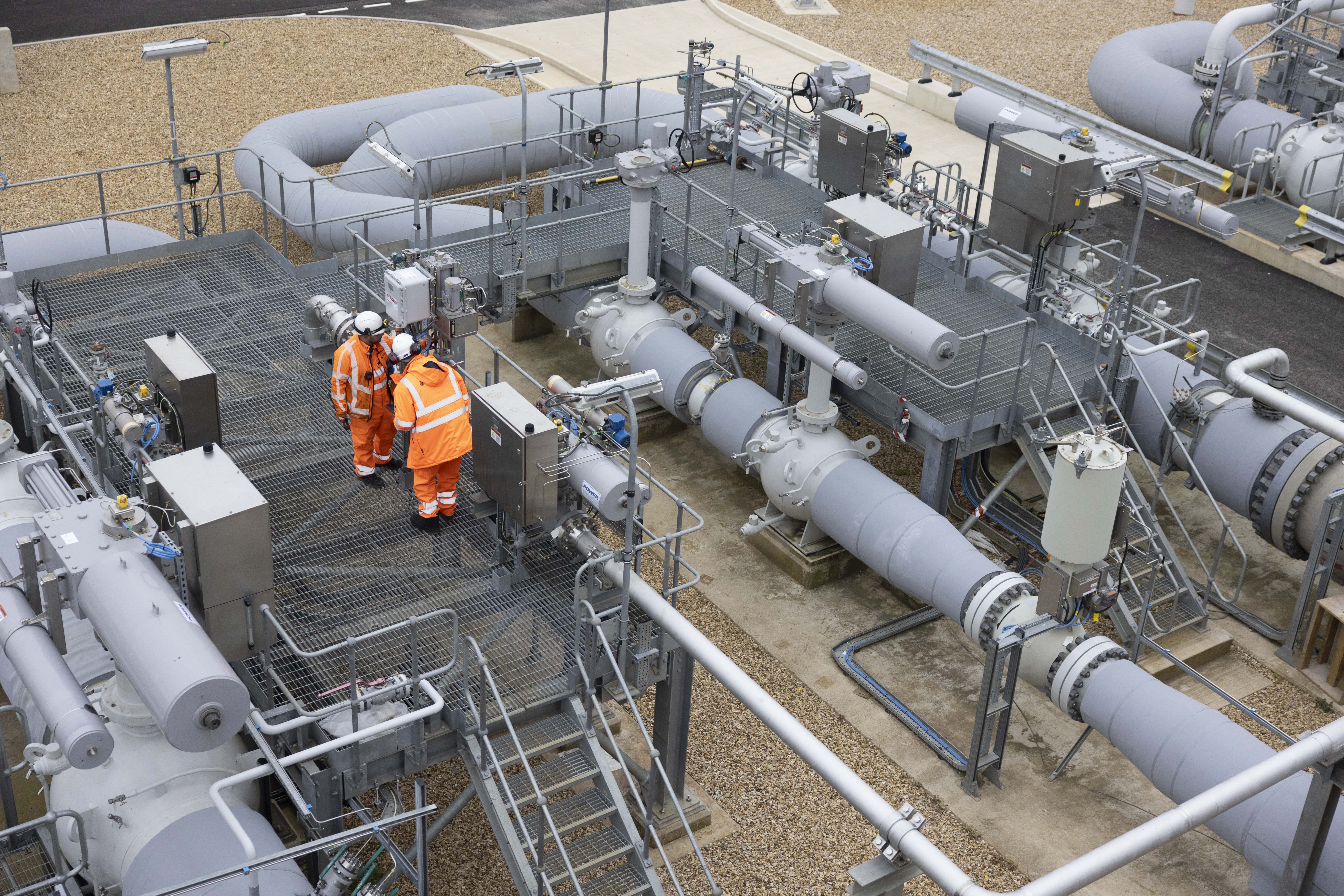Project Union

Hydrogen
Project Union
Project Union will repurpose existing gas transmission pipelines and build new pipelines to create a hydrogen ‘backbone’ for the UK. It will enable a low-cost route to net zero, supporting the growth of the UK’s hydrogen economy and the decarbonisation of power generation and major industries
Building the UK’s hydrogen transport network
Project Union involves repurposing parts of the 5,000-mile gas National Transmission System (NTS) to carry 100% hydrogen. It will initially create local transmission networks to link strategic hydrogen production and storage sites with industrial clusters. Eventually, these regional networks will be connected to create a 1,500-mile hydrogen transmission network across Great Britain. It will also provide the option to expand beyond this initial network to connect additional consumers in future.
Project Union will create a resilient transmission network and open a hydrogen market that will support the growth of hydrogen production across the UK, provide a low-carbon option for major businesses, and ensure continued security of supply through low-carbon gas storage.
Why is Project Union so important?
Low-carbon hydrogen is required for all net zero scenarios. The UK needs to act fast and at scale to ensure energy security and independence, meet decarbonisation targets and achieve its legally binding net zero 2050 commitments.
Hydrogen offers opportunities to decarbonise power, industry and transport. Investment in hydrogen transmission infrastructure will link hydrogen production sites with demand and storage, and secure inward investment to build a hydrogen economy. It will enhance energy security for the UK and connect our hydrogen transmission network with the European hydrogen backbone via interconnectors and with LNG terminals – enabling hydrogen to be exported around the world.
The need for a hydrogen network across the country is recognised and endorsed by the National Infrastructure Commission, the Department for Energy Security and Net Zero, and the Climate Change Committee.
Project Union pipeline routes
Project Union will convert existing natural gas pipeline infrastructure and build new pipelines, where needed, to transport 100% hydrogen, connecting the industrial clusters at Teesside, Humberside and Grangemouth as well as linking up Southampton, the North West and South Wales. It will also connect to strategic hydrogen production sites, including St Fergus, storage sites and Bacton, connecting UK hydrogen to European networks.

How will the hydrogen network be built?
Project Union will be developed by repurposing existing assets in a phased programme, alongside the construction of new assets. It will create a hydrogen backbone, comprising around 1,500 miles of pipelines. The phased approach avoids asset stranding and decommissioning costs. Repurposing existing assets is more cost effective than building new pipelines and assets – it also minimises environmental impacts.

